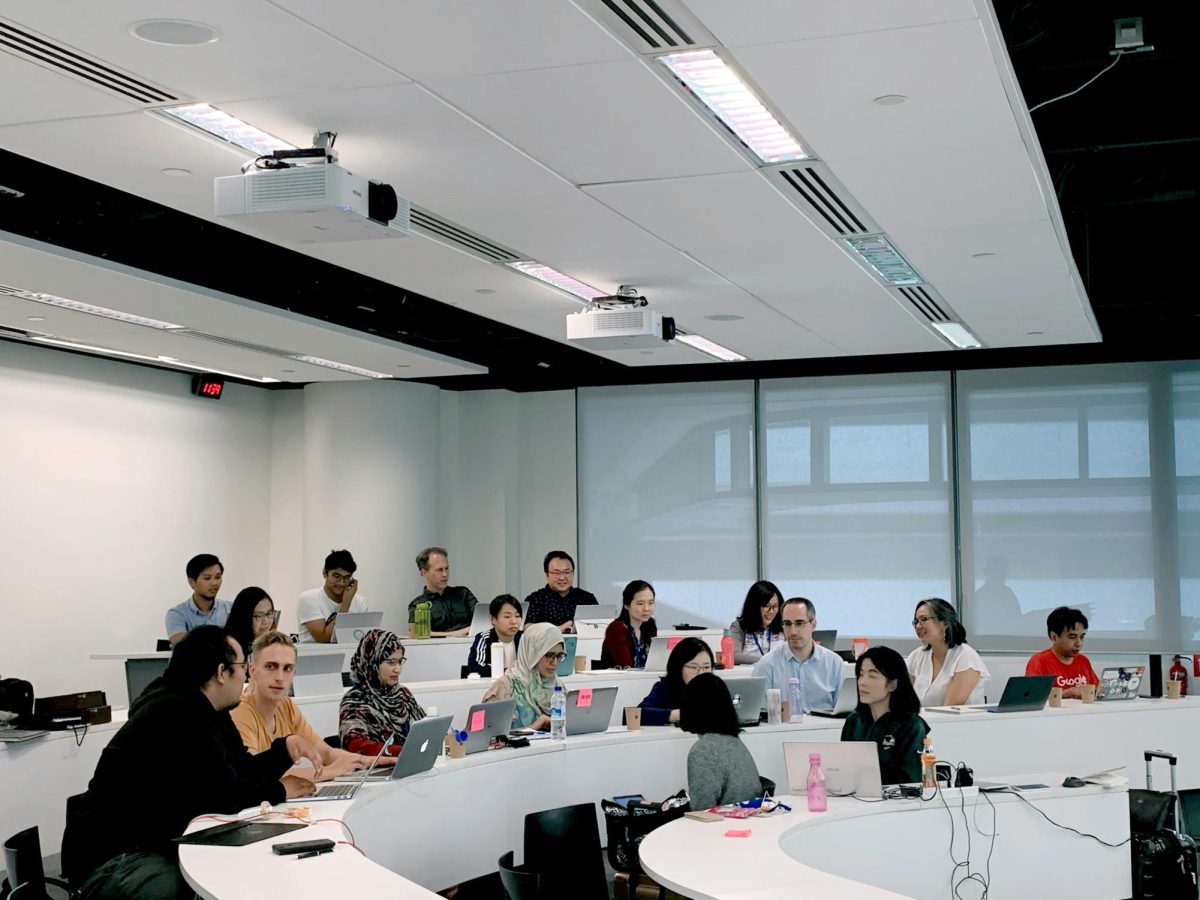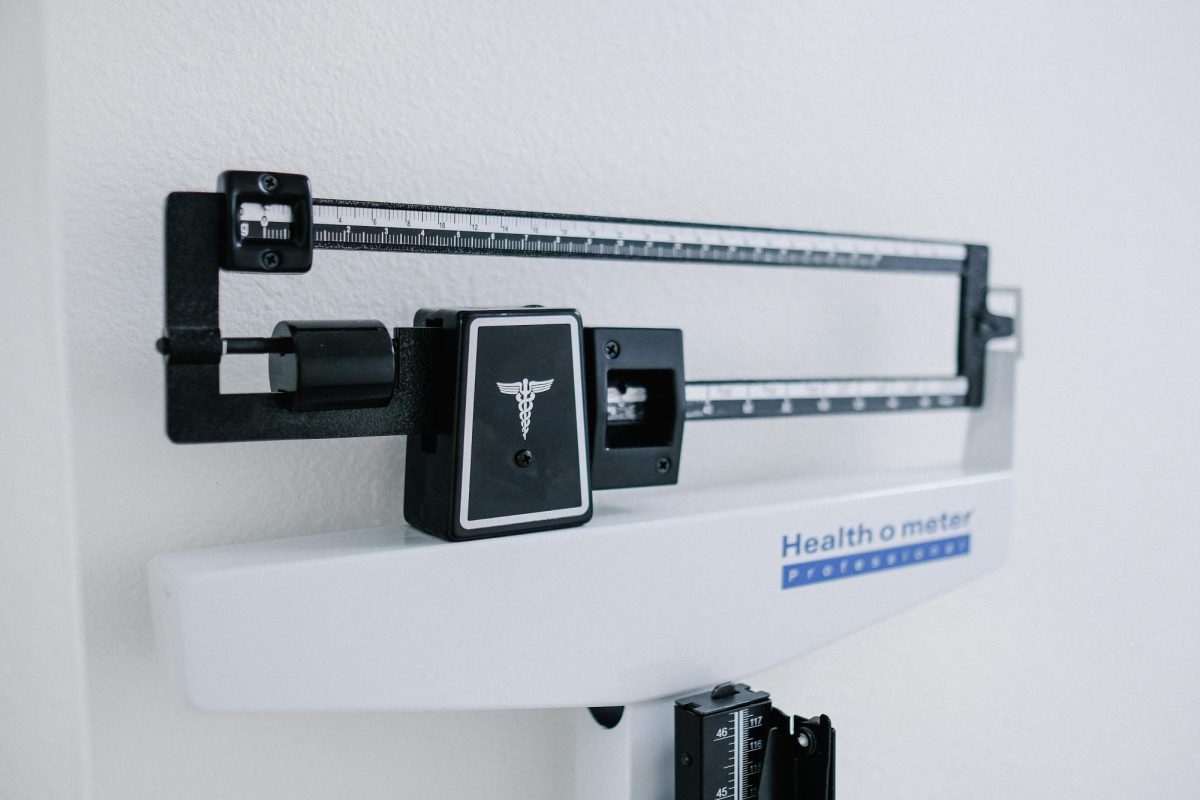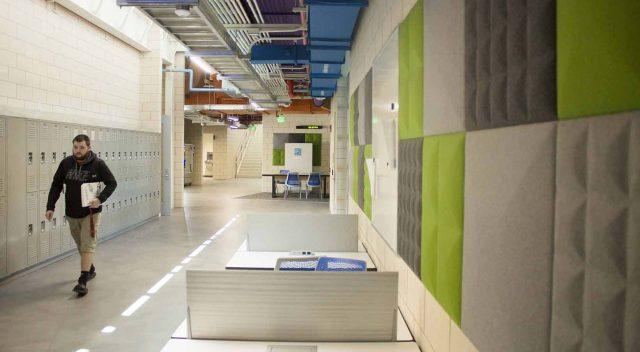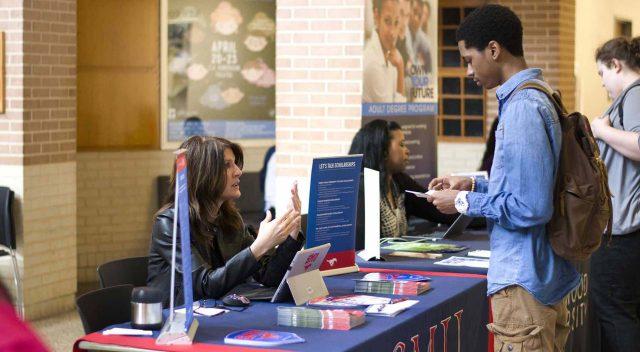By Tommie Owen

Bogdan Sierra Miranda/The Collegian
SE success coach Rachel Villanueva’s goal is to increase student confidence in making financial choices.
She presented Credit Basics – How Money Works as part of the Money Mondays series exploring the way lenders make money, the cost of borrowing and tips for maintaining good credit.
“Hopefully, these sessions will help students learn more about how credit works and keep them from having bad credit in the future,” she said.
Villanueva told students that credit is borrowing money rather than paying for things up front, enabling students to purchase a house, car or education they couldn’t afford otherwise. Other people give a student money to buy something in return for the borrower’s promise to repay it.
“Interest is calculated as a percentage of the amount borrowed on an annual basis,” she said.
Lenders are legally required to quote interest rates in terms of an annual percentage rate, also known as APR. Using the APR is one way to comparison shop for a loan.
“A lower APR is always better,” Villanueva said.
Students want to think ahead before borrowing and figure out how much they will have to pay back so they will know whether or not they can afford the payments, Villanueva said. Making payments on time protects credit.
Credit allows students to even out their income and spending over a long period of time.
Villanueva closed the presentation with a story about a college student who spent $90 for pizza. He ordered a $25 pizza for his friends during a study session. He was surprised the next month when his credit card statement showed a $35 over-the-limit fee and a $30 late fee.
During the Q&A session, students learned that most banks offer a free yearly credit check.
SE student Edigar Kiema said he has attended two sessions.
“They are always informative and interactive,” he said.





























